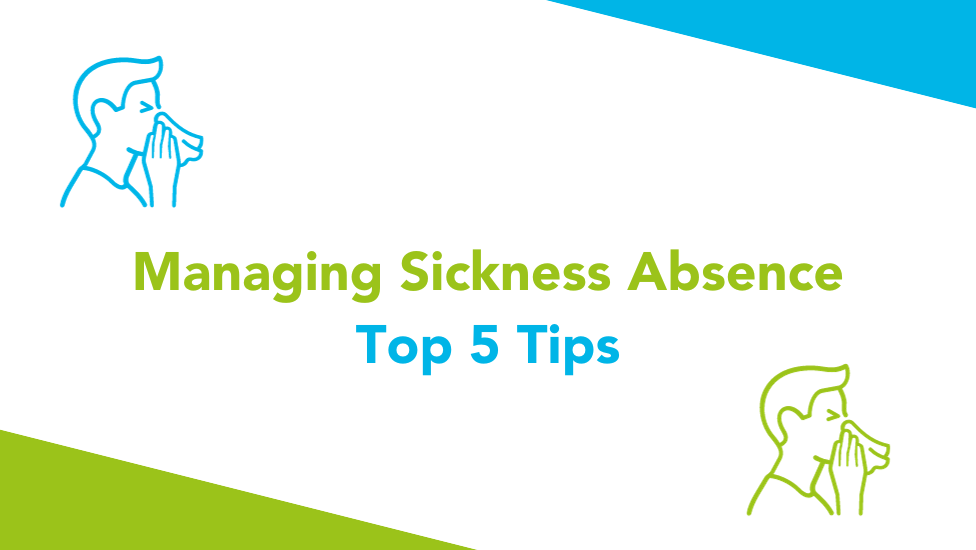
Managing Sickness Absence: Top 5 Tips
ACAS has recently updated its guidance for employers and employees on Holiday, Sickness and Leave. HR Connect thought it would be a good time to remind you of some Top Tips for Managing Sickness Absence.

ACAS has recently updated its guidance for employers and employees on Holiday, Sickness and Leave. This guidance covers how to manage a return to work after a period of absence, keeping in touch during absence, and creating absence policies. You can read the full ACAS guidance here.
We thought it would be a good time to remind you of some Top Tips for Managing Absence
1. Have a Managing Absence Policy in place
A well-defined sickness absence policy is imperative for managing absenteeism effectively. It should set out the expectation for employees, outline reporting procedure and details the processes that will be followed in the event of high absences. For HR Connect customers, we updated our Absence and Ill Health Policy in June 2023 for you. This can be found here.
2. Promote a Healthy Working Environment
A positive workplace culture that emphasises employee well-being can significantly reduce sickness absence.Encourage work-life balance, stress management, and physical health through initiatives like flexible working arrangements, wellness programs, and ergonomic assessments. A healthy work environment fosters a healthier workforce.
3. Effective Absence reporting procedures
Having streamlined reporting procedures ensure that employees report absences promptly and accurately. This allows employers to track absences, plan for cover, and provide support when needed. Effective reporting also helps identify patterns of absence, which can signal underlying issues that require attention. The Government has very recently updated guidance on Fit Notes, which includes a checklist for employers, which can be found here.
4. Open Communication
Encourage open and transparent communication between employees and managers during absences. Employees should feel comfortable discussing their health-related concerns or any issues affecting their ability to work. This proactive communication can help managers better understand the situation and provide appropriate support, whether through temporary accommodations or access to resources for recovery.
5. Conduct Return to Work interviews
Return-to-work interviews are a valuable tool in understanding the reasons behind an employee's absence. They provide an opportunity to offer support, discuss necessary adjustments, and deter unwarranted absences. These interviews contribute to promoting early returns to work and identifying any underlying health concerns. You can find a recording template for RTW meetings here.
It is important in your efforts to manage sickness absence, to be mindful to approach the process with empathy and a focus on employee well-being. Effective sickness absence management is a collaborative effort that benefits both your employees and your school. By following these tips and maintaining an empathetic approach, you can continue to foster a healthy, productive, and resilient workforce.



